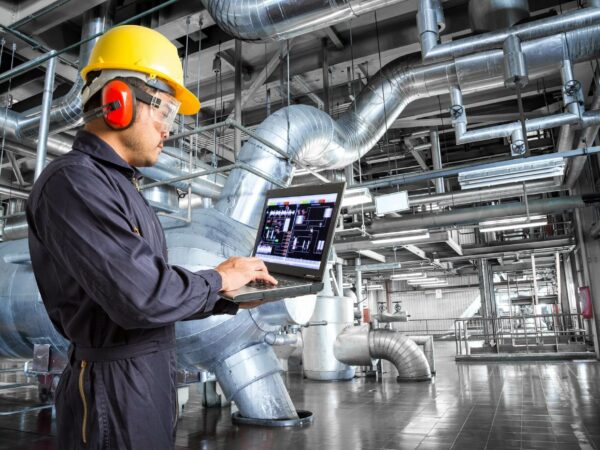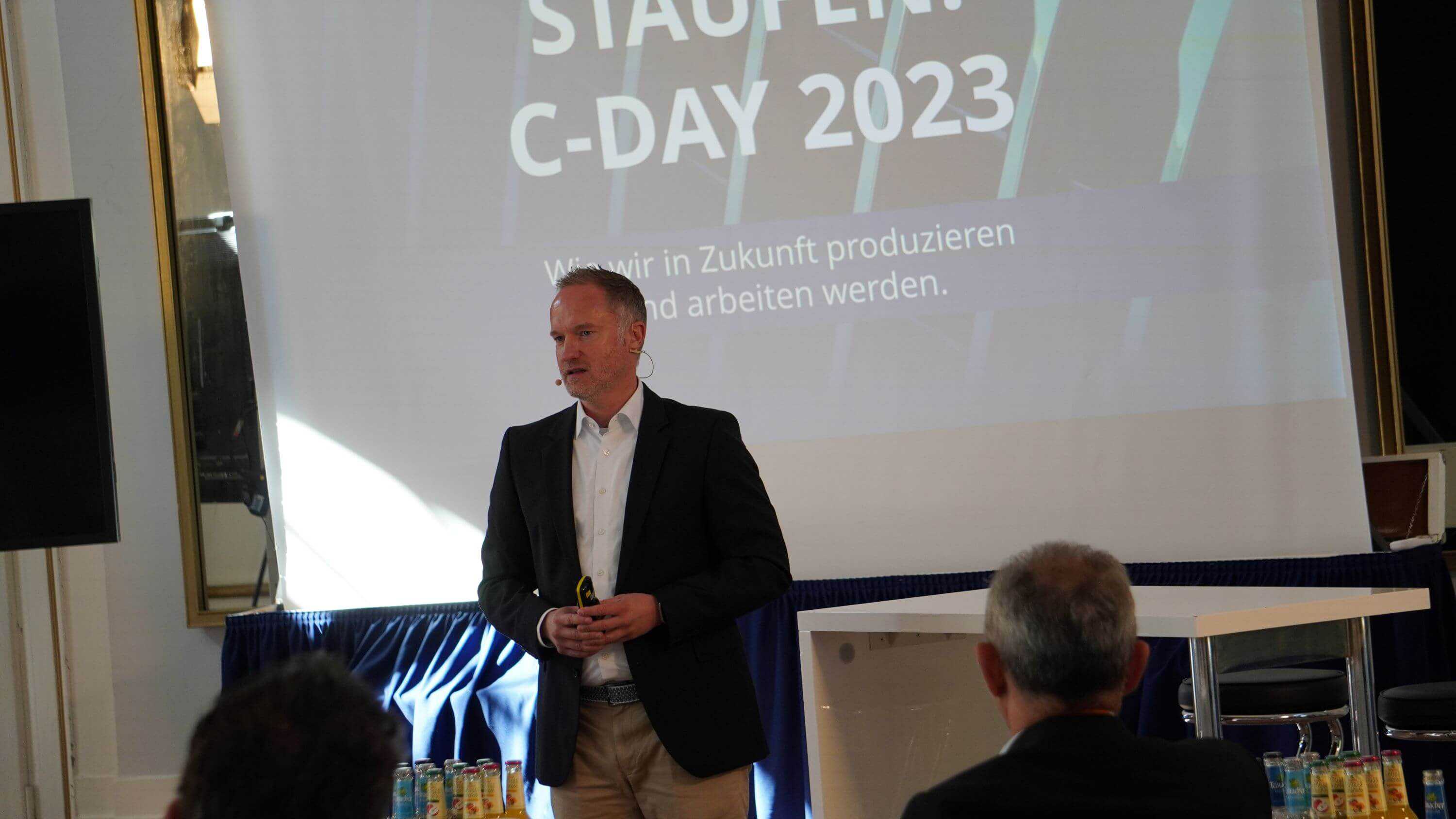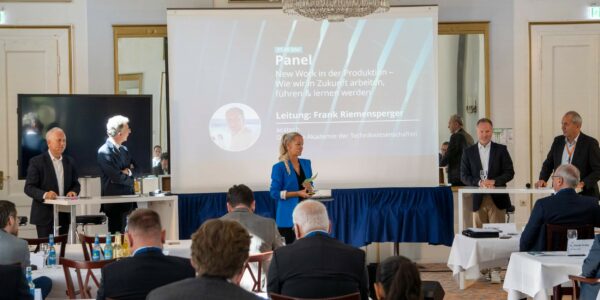
With the introduction of ChatGPT, artificial intelligence has advanced onto the big stage to usher in the next round of digitalization – including in production. That is (still) a major challenge for a large number of medium-sized industrial companies. A vision and a strategy are needed. Staufen C-Day was encouraging in showing the applications in which AI makes sense and where the focus now lies.

Is AI becoming the next affront to humanity? Is it bruising our ego given how much faster, more accurate and, above all, less expensive it is than we are? This was the provocative question posed by Prof. Marco Huber of the Fraunhofer Institute for Manufacturing Engineering and Automation IPA in Stuttgart, Germany. The economic potential of the technology is huge, the scientist explains. In Germany alone, it is anticipated that AI will generate additional growth in gross domestic product of 430 billion euros* by 2030.
Companies in the manufacturing sector are primarily anticipating lower costs in warehousing and indirect areas, faster time-to-market, better utilization of factory capacity, and fewer rejects. Up until now, Huber goes on, there have only be very few AI applications in production. Primarily, this involves machine learning, i.e. learning from patterns in data.
Machine learning in production
Potential applications for machine learning in the production process include assessing the degree of wear of critical components or AI-assisted visual inspection, dramatically cutting down on manual re-inspection of electronic components. However, machine learning can also be used for configuring production systems. This is already a topic being discussed in many large companies. “Every machine has a large number of parameters that need to be configured for the production process to run as optimally as possible. This is something that people with a lot of experience do, but it will probably never be perfect,” said AI expert Huber. Using AI allows the development of “assistance systems” where employees are provided with suggested parameters based on production data, and the decision is ultimately made by the human operator. One even more far-reaching possibility, he said, is the autonomous optimization of machine parameters. He advised all executives considering the introduction of AI in their own companies to start with small, manageable projects. What is especially important: “Unless that data is good, you might as well not do the AI thing at all.”
Unless that data is good, you might as well not do the AI thing at all.
Prof. Marco Huber,
Fraunhofer Institute for Manufacturing Engineering and Automation IPA in Stuttgart, Germany
AI in the company requires a clear announcement from the top

Joachim Franz, Automotive Industry Lead at Microsoft Germany, spoke at C-Day, mentioning the new era that the industry was being confronted with. AI will influence all areas in value creation, not just in manufacturing. In manufacturing, the top application for AI is predictive maintenance, he said, because the technology helps prevent unwanted downtime. Predictive maintenance requires companies to consistently collect and store data from networked manufacturing facilities. By analyzing this data, errors, their causes, and potential patterns can be identified, says Franz. If deviations occur, employees are then automatically alerted to implement necessary maintenance actions either immediately or in a planned manner.
Just as Fraunhofer researcher Huber, Joachim Franz also emphasized that the basis for AI is a robust database. Implementing AI involves a multi-stage process that companies are advised to follow: “It all starts with a clear strategy. Because collecting all that data makes no sense, companies should focus on specific applications. “Start small and be agile in your approach”, the Microsoft manager advises. Moreover, data governance is enormously important, he added, i.e. establishing guidelines and standards, for example for the exchange of data across company boundaries or on the subject of sustainability. Joachim Franz: ” AI holds enormous potential, but its use has to be wanted ‘from the top’. This is why a C level announcement is needed to send the company on its way.”
*Study by PWC 2019
You might also be interested in

“We can’t yet estimate what kind of a revolution is taking place now.”
From personalized medicine to AI-supported image evaluation – at Roche Diagnostic International AG, digitalization is already a permanent component of the business model. Nevertheless, Dr. Ralf Eisenbrandt, Head Global Operations Consumables, is convinced that caution should still come before speed in the digital transformation.
Read more
Digitalization & Industry 4.0
Intelligent Industry 4.0 production processes can be applied to accomplish a variety of objectives. These include achieving greater productivity and efficiency, fulfilling consumer specifications faster and more expediently, and developing brand-new industrial products and business models. Small and mid-sized companies often have a particular need for this kind of consulting and guidance.
Read more
Staufen C-Day 2023: Opportunity in change
At the end of September, Staufen AG’s C-Day offered around 50 decision-makers from the industry a newly created information and communication platform. The Executive Conference in Bad Teinach, Germany, focused on one of the most pressing questions of our time: How will we produce in the future?
Read more